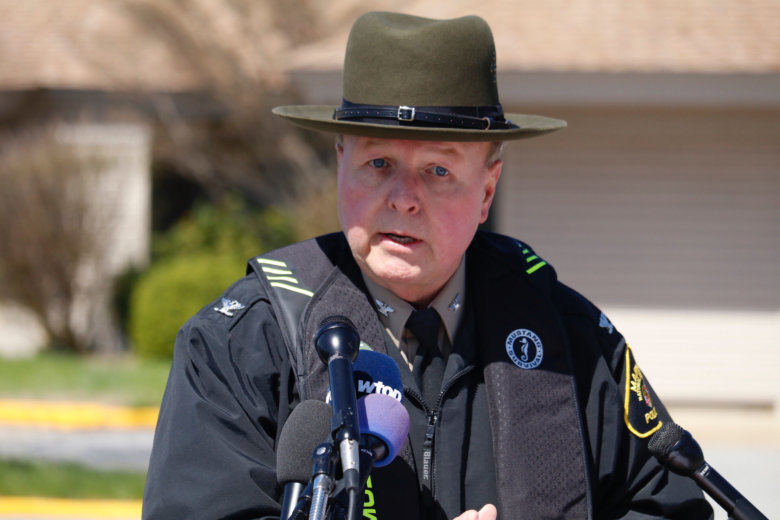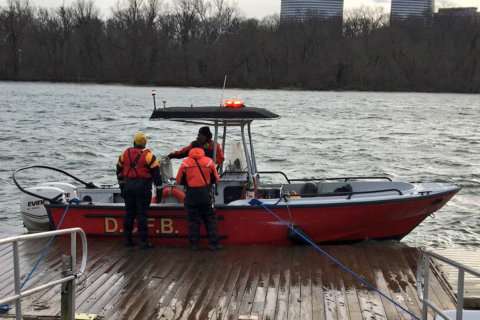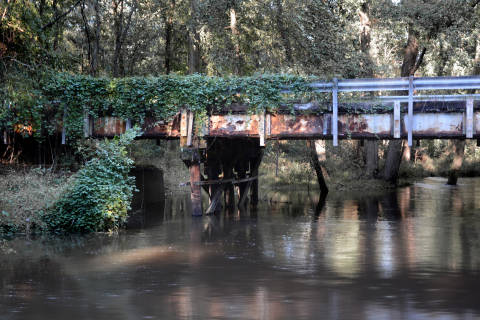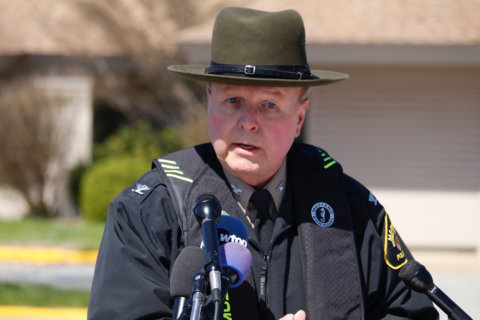
SANDY POINT STATE PARK, Md. — Under blue skies, with dazzling sunshine glinting off the waters of the Chesapeake Bay, members of the Maryland Natural Resources Police and the U.S. Coast Guard delivered a grim message: The boating season has gotten off to its deadliest start in six years, with four deaths in three incidents on Maryland waterways.
Since April 4, there have been fatal incidents on the Potomac, Chester and Severn rivers. The four victims included a laborer, a vacationer and two fishermen, said Col. Ken Ziegler with the Maryland Natural Resources Police. Their boats ranged in size from a kayak to a 43-foot cabin cruiser.
“They all had one thing in common,” said Ziegler. “None of them was wearing a life jacket.”
Ziegler said all four victims were near shore when they ran into trouble and within range of potential rescue. “A life jacket would have bought them the time that they needed until help could arrive,” Ziegler said.
With the start of the striped bass season set for Saturday, Ziegler said his agency was intent on preventing more tragedies.
“We need everybody to build a little extra time into their pre-launch rituals to make sure that everything’s as ship-shape as it can be,” he said. That means making sure that life jackets are on board and the boat and equipment are in good working order, Ziegler said.
Ziegler said he knows that boaters and anglers are eager to put their boats into the water and squeeze every minute possible out of the boating season. “But he said that “the water temperatures remain dangerously low, and volatile weather has battered the region with high winds and rough seas.”
Candy Thomson, spokesperson for the Natural Resources Police, took the temperature of the waters off the boat ramp on a day when the air temperature approached 60 degrees. “The temperature right now, under the Chesapeake Bay Bridge, is 49.3 degrees. That’s 10 degrees cooler than the same time last year.”
Ziegler explained that falling into cold water is a massive shock to the system, and said most victims begin to panic and struggle to control their breathing.
“The survival clock begins to tick,” he said, explaining that cold hands make grabbing a hold of rescue lines or trying to fasten a life jacket nearly impossible. After one hour in the water, the body’s core temperature becomes hypothermic and victims lose consciousness.
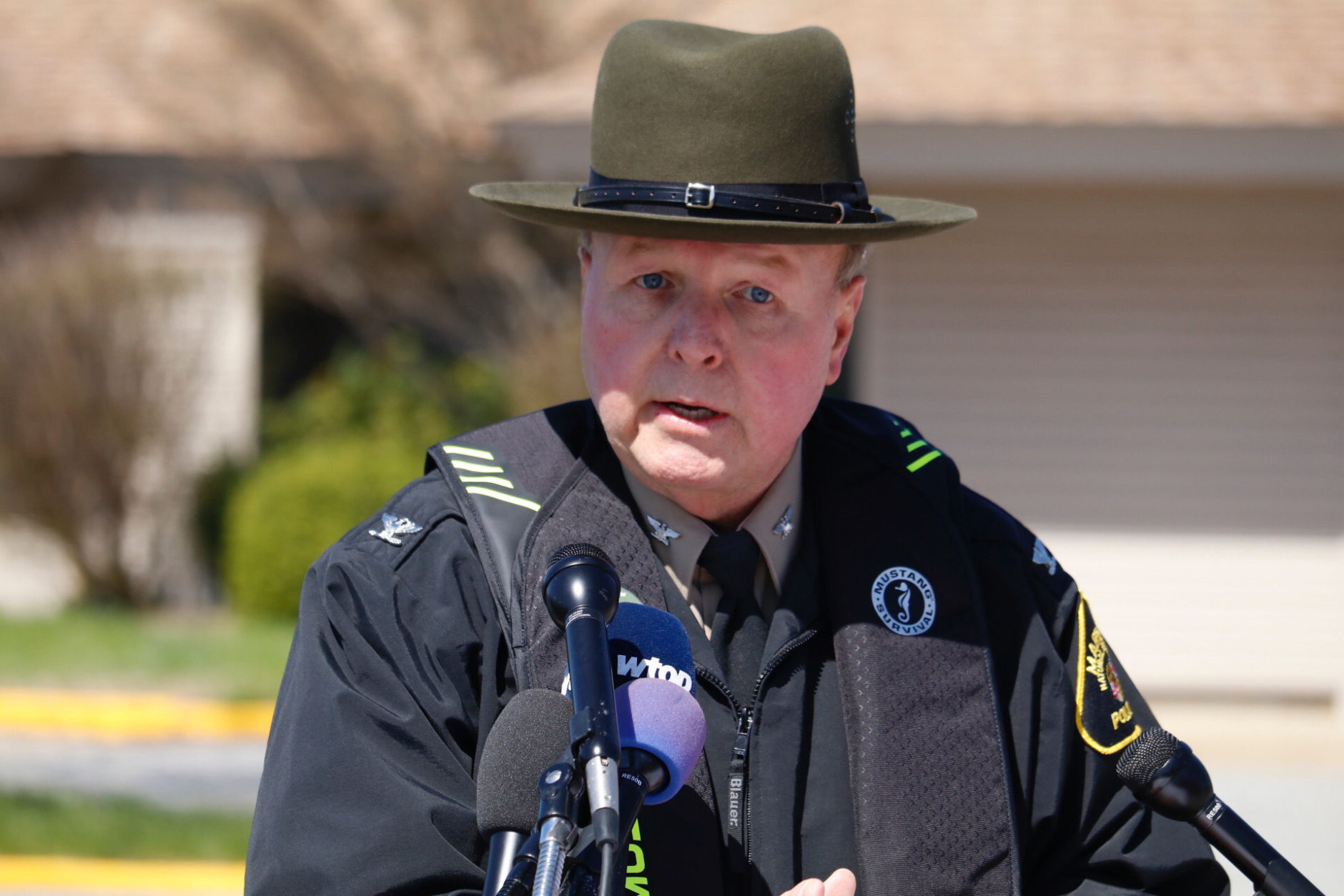

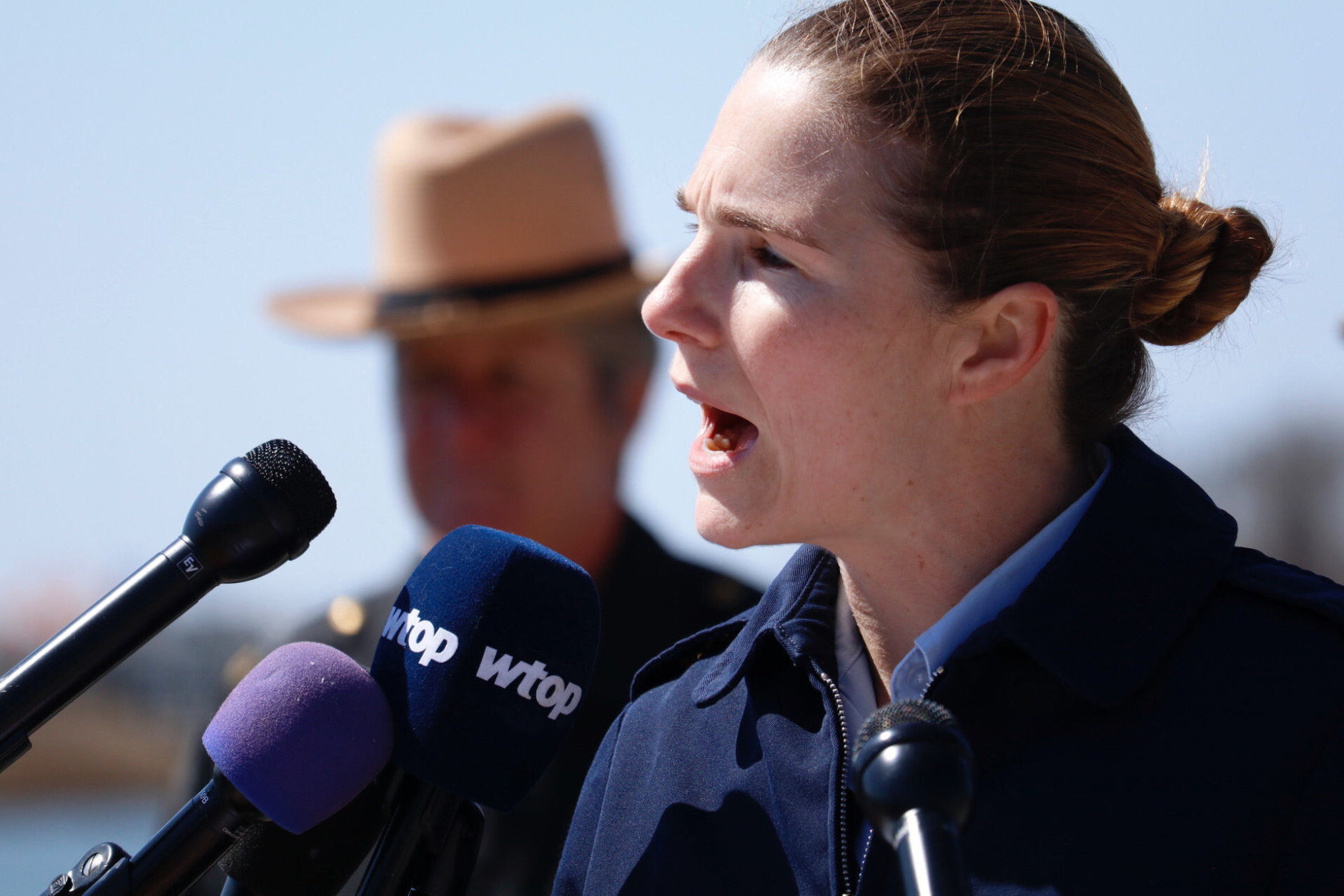


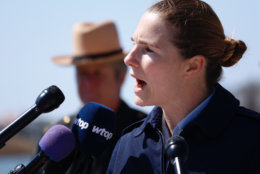
According to U.S. Coast Guard statistics provided by Ziegler, 60 percent of the people who fall into water with temperatures under 50 degrees drowned, and 43 percent of those were less than six feet from safety when they drowned.
In an effort to drive home how effective life jackets can be, Ziegler cited the recent case of a 44-year-old man who was fishing in his kayak at the mouth of the West River when the vessel capsized. Ziegler said there was little boat traffic, and it wasn’t until 8 p.m. when a passing sailboat spotted him and made a broadcast on the emergency channel. A power boat picked the man up.
“He’d been in the water for about three hours,” Ziegler said. Medical officials said the man’s body temperature was 82 degrees — dangerously hypothermic.
Ziegler said that without the life jacket, there’s no way the man would have remained above the water, visible to passing boaters and in a position to be rescued. The man is expected to recover.
“Spring is a dangerous time for Maryland boaters. Warm air can make you quickly forget how dangerously cold the water actually is,” U.S. Coast Guard Lt. Commander Sara Wallace told reporters.
Wallace urged boaters to make sure that they actually wear the life jackets on their vessels. She also urged boaters to have a VHF radio on board.
“A call for help on a cell phone is a call to one person. A call for help on a VHF radio on Channel 16 is a call to anyone else that’s listening in on the radio.” It’s also a channel that’s monitored by the Coast Guard.
Natural Resources Police, reserve officers and the U.S. Coast Guard’s auxiliary and power squadrons will be working together to educate the public on boating safety this season, Ziegler said.
“We’ll be conducting free boating inspections;” and officers will be at boat ramps, out on the water and patrolling by air, Ziegler said.
“We don’t want to spoil anyone’s day on the water, but if we find you do not have the proper safety equipment on board and are lacking life jackets for every passenger, we will terminate your voyage and send you back to shore,” he said.
More safety tips:
- Wear a life jacket every time you go out on the water. Make sure it’s fastened properly.
- Have a VHF radio and learn how to use it to put out a call for help.
- Boat with a buddy. Don’t go out alone. Make sure the person out with you can operate the boat you are on.
- Dress appropriately. Know the water temperature as well as the air temperature. If the water temps are below 60 degrees. Wear a dry suit or a wet suit.
- Take the time to refresh your boating skills or consider taking one of the free boating courses offered by the Coast Guard Auxiliary. You can get information by going to its website.
Watch a demonstration on how to activate a life jacket.

